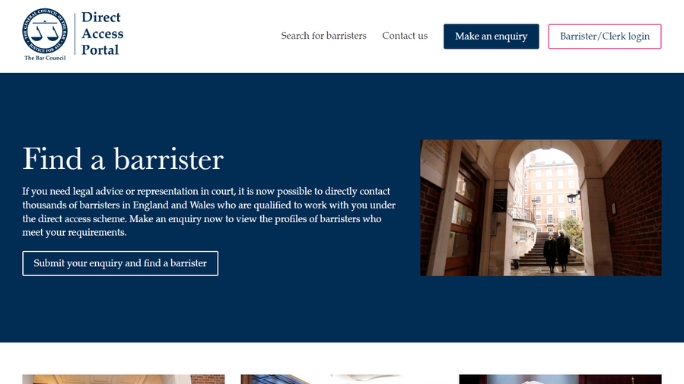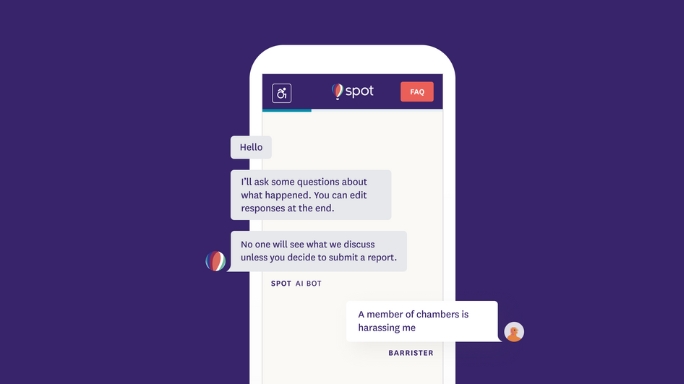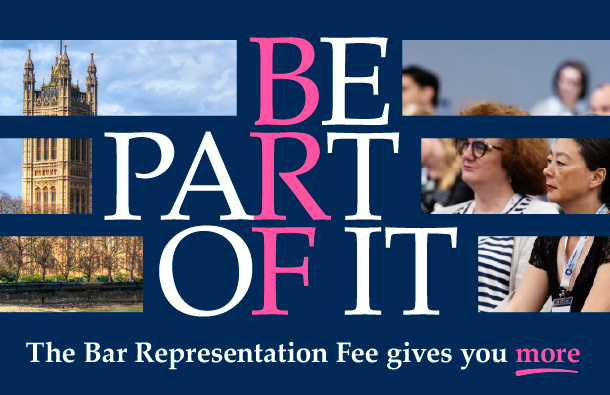Who we are
We are the voice of the barrister profession in England and Wales. We lead, represent and support the Bar in the public interest, championing the rule of law and access to justice. Our nearly 18,000 members – self-employed and employed barristers – make up a united Bar that aims to be strong, inclusive, independent and influential.
As the General Council of the Bar, we’re the approved regulator for all practising barristers in England and Wales. We delegate our statutory regulatory functions to the operationally independent Bar Standards Board (BSB) as required by the Legal Services Act 2007.
How our work is funded
When you complete the annual authorisation to practise process, 71% of the practising certificate fees goes to the Bar Standards Board, Legal Services Board and Legal Ombudsman.
Just 26% goes to the Bar Council, and that covers only 65% of the income we need to effectively support the Bar.
The remaining funds are generated by our services, training and events portfolios, generous contributions from the Inns of Court and, importantly, the BRF.
All of the income to the Bar Council is invested in services and support for barristers.

Look out for this stamp across our website, this indicates our work that is funded or partly funded by the Bar Representation Fee.
How much is the Bar Representation Fee?
The minimum voluntary contribution is £160 a year (or under £13.50 per month via Direct Debit). If you wish to contribute more, you are welcome to do so. Last year hundreds of barristers chose to contribute above the suggested amount. All of the income to the Bar Council is invested in services and support for barristers.
What exclusive benefits do you receive as a BRF subscriber?
- 20% discount on all our training courses and events
- A monthly subscription to Counsel magazine (standard price £167)
- Access to our member benefits portal offering substantial discounts on a wide range of retailers such as Apple, John Lewis, Expedia and many more
- The facility to request the free appointment of an arbitrator, mediator or expert by the Chair of the Bar (standard price £500)
- A free listing on the Direct Access Portal, the online platform where members of the public and businesses can search and request a direct access barrister
- You and your family can contact a GP anytime, anywhere via the DoctorLine service for an additional subscription fee of £40 (+ VAT) per year
How do you sign up?
You can subscribe to the BRF via MyBar at any time. In MyBar go to the left-hand navigation, click on 'My Bar Council', then select 'Sign up to the Bar Representation Fee' and follow the steps.
What does the Bar Representation Fee fund?
The legal framework means that not all aspects of the Bar Council’s representative and campaigning work can be funded through the Practising Certificate Fee, much of our work would not be possible without the vital contribution of the BRF. Find out more about some of our work that is funded or partly funded by the BRF:

Ethics support
Our ethical enquiries helpline is our most-used service – receiving around 5,000 enquiries a year. Through our ethics and practice hub, we provide guidance documents and template policies covering all areas of practice management.

Direct Access Portal
The Direct Access Portal receives thousands of enquiries each month. Barristers registered to our Direct Access Portal can receive direct instructions from individuals and organisations. Available exclusively to BRF subscribers.

Wellbeing at the Bar
We recognise that you are exposed to challenging environments on a daily basis. We provide support, information and training you need in order to stay well.

Tackling bullying and harassment at the Bar
We take bullying and harassment at the Bar seriously. We provide support and resources, and help by recording and reporting incidents through services such as Talk to Spot.

Lobbying and influencing decision-makers
We give the Bar a stronger voice by providing written responses to public consultations, evidence and briefings for parliamentary inquiries. We regularly meet with MPs and Peers from all parties and civil servants in key departments to amplify the collective voice of the entire profession.

Mentoring
At every stage of your career at the Bar we’re here for you. Our range of mentoring services support you from pupillage through to securing Silk and judicial appointments.
